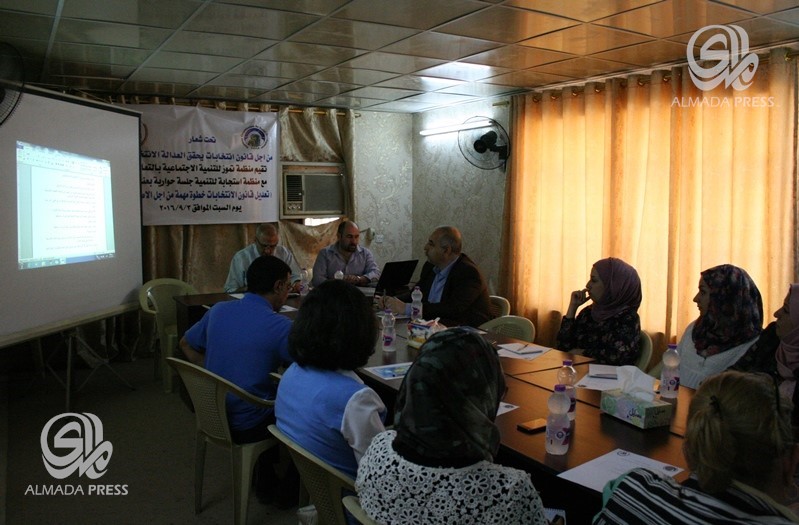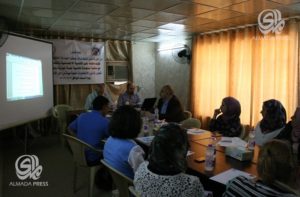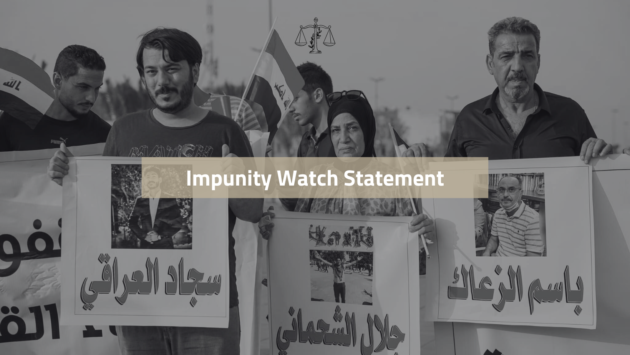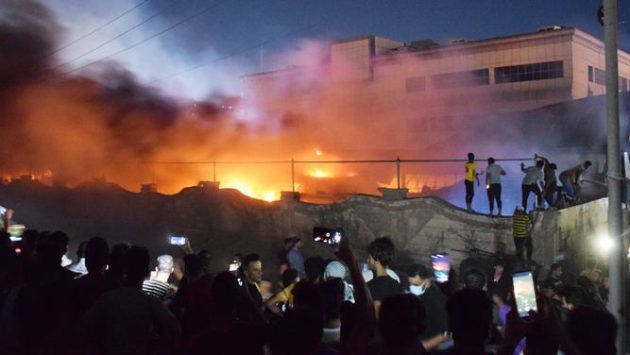Activists Call for a Decrease in the Number and Age of Parliaments Members, and for the Prevention of Security Forces from Participating in Elections
ALMADA PRESS /Baghdad
Civil activists are calling for modifying the age at which one can run for parliament or provincial councils to 25 years old. Activists are also demanding candidates have university degrees, and that the Sainte-Laguë method be used to count the number of voters. Activists say there must be a decrease in the number of parliament members and are demanding the nonparticipation of security forces in the elections, as is done several other countries.
These demands are the result of a discussion session held by the Tammuz Organization for Social Development and National Foundation, under the title “Modifying the election law an important step for achieving reform.” The session was attended by Saffaa al-Musawi, the councillor of commissioners of the Independent High Commission for Elections Council; the representative of the Iraqi Election Information Network (for election monitoring); other groups of civil activists; Lawyers and those concerned with elections.
At the start of the session, Evan Al-Faily — relations officer for the Tammuz Organization for Social Development — gave a summary about the goals of the session and reviewed a number of previous legislation pieces and their stages of approval, using the most recent 2014 parliamentary elections as an example.
Next, Alaa al-Saffar, an activist and researcher specializing in elections, presented a study on the election law and elaborated on paragraphs within the law that require modification, such as the decrease in age of parliament member candidates — specifically because the party law already allows 25-year-olds to establish a party but forbids them from becoming electoral candidates. Saffar remarked on requiring candidates to hold university degrees and suggested the use of the Sainte-Laguë method to count the number of voters. He discussed the importance of modifying Article 49 of the Iraqi Constitution, which delegates the number of parliament seats to 100,000 for each parliament member, and he suggested increasing that number to 200,000-250,000 for each parliament member.
Saffar spoke on the mechanisms regarding fiscal spending on political party campaigns after the the party law has been implemented , and how to monitor spending and prevent public money from being used on its state departments. Such mechanisms should not serve personal or partisan interests, he said, discussing the important need to adopt a good electoral register to ensure the existence of the names of all voters on universal suffrage by strengthening the procedures adopted by the commission, increase media exposure of the prometric registration, and update voter registration deadlines to September 5, 2016, to ensure participation in the upcoming elections.
During the session, in a summary on the participation of security forces and how they played a positive role in some previous elections, Saffar called for a constitutional modification to prevent security forces from participating in the elections and to dedicate its duty to the national mission, which is to protect the citizens and the homeland and ensure the success of the elections, as is the case in other countries, such as Lebanon.
Saffar also addressed the issue of the women’s quota and women’s representation in parliament, calling for better, alternative ways to choose women and their representatives in both parliament and the provincial council.
Opening the door to dialogue, Musawi answered questions concerning the commission and the proceduresthat are currently been used by the electoral commission , saying systems should be established that govern the operation of political parties according to the current laws of the party. He answered questions about the data to be adopted by the commission while establishing a voter registry, and he assured that everything had been changed and the commission is making a solid electoral register through the prometric update, in which no one can vote unless they have a voter ID, which will eliminate repeated voting or using more than one ID to vote.
The Tammuz Organization for Social Development has been working on election monitoring and legal legislation since the first elections were held in Iraq in 2005. These types of discussions reach for the best formula to guarantee democracy in Iraq and the peaceful transfer of power, and to contribute to electoral justice in the country.
The Tammuz Organization continues to hold discussion sessions in collaboration with civil society organizations in order to achieve ideal reform laws.





